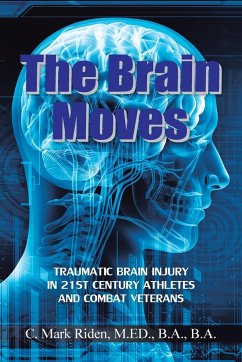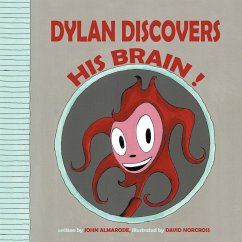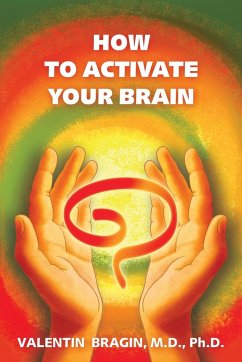In his 2014 book, The Brain Moves, author C. Mark Riden, M.Ed., B.A., B.A. provides the artillery needed to repel the epidemic of brain trauma sweeping through American athletic and military culture like an Oklahoma storm ripping and tearing its way across a landscape. Riden's investigative work in traumatic brain injury (TBI) looks at two distinct populations affected by closed blunt force trauma (CBFT): Current and former athletes who play or have played contact sports and military combat veterans home from war looking for a new sense of belonging. CBFT refers to an object or person impacting the head or helmet causing the brain to move inside the cranium. When the brain becomes overwhelmed by closed blunt impact, ungovernable acceleration and deceleration forces inside the cranium obtrusively contort the brain causing immediate and long-term neuronal damage. Riden's work covers detailed collegiate research studies and an extensive interrogation of scholarly and non-scholarly evidence. Beginning with discussion on biomechanics and the physiological makeup of what Riden calls the twenty-first century biological super-athlete, the author deposits eight dynamic chapters of TBI information on problems discovered in youth, college, and professional sports as well as the United States military. Passionate about providing empirical confirmation on TBI during a time of injurious uncertainty in sports where athletes and soldiers are bigger, stronger, and faster, Riden's propositions, solutions, and theories are directed at reducing CBFT frequency, social maladaptation, and cognitive disruption. Supported by data, Riden's book delivers a unique synthesis on the underpinnings of TBI associated with social competition, human nature, and cultural history. Drawn to amphitheaters of opposition, awkwardly the environments in which we have selected to compete are now killing us. Clearly, it is a gladiator's future we have chosen for ourselves. Confronting and adapting to TBI through education will be part of that future.








